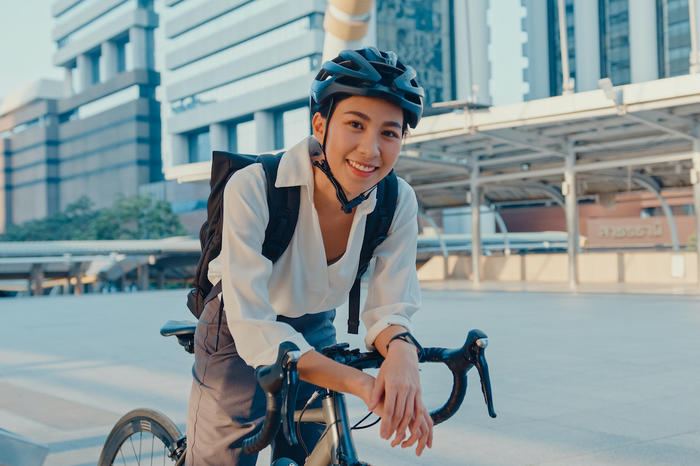Department of Education and Psychology
Service Navigation
- Homepage
- Members
- Contact
- Imprint according to § 5 Telemediengesetz (TMG)
- Privacy Policy
- Accessibility Statement
- Sitemap
HASCI Studies – Healthy, Active and Sustainable Commuting Interventions
Active commuting habits
Active commuting, that is, walking, cycling, and public transport use for work transportation purposes, aims to both promote physical activity and reduce environmental impact, and thus has the potential to contribute to many of the United Nations' Sustainable Development Goals (SDGs). How people get to work is often a highly automatized and habitual process, which many people carry out frequently and without thinking about it. Based on previous research, an established habit can be substituted by a new habit by repeatedly executing a new behavior in the same context (habit substitution). While longitudinal study designs on habit formation have primarily examined the formation of new healthy eating and exercise habits, habit substitution has remained a less studied aspect of habit research. In addition to habit formation, there are other considerations for how health behaviors can be sustainably embedded in individuals' lives. In addition to individual factors, including the social environment (e.g., friends, family, colleagues) could be helpful in ensuring that both individuals benefit from shared resources and achieve long-term behavior change through mutual support. To date, mixed study findings exist on when buddy-supported interventions work and how social exchange processes can be deliberately promoted. Active commuting provides an optimal context to examine how an existing and less active commuting habit (e.g., driving a car) can be replaced with a new more active commuting habit and how two individuals can best support each other in the process.
In HASCI-1 and HASCI-1plus1, a new active commuting habit is encouraged. Find out what the focus of the sub-studies are!
You consider participating in the studies HASCI-1 (study for individuals) and HASCI-1plus1 (study for teams of two)? Check the participation requirements here!
We look forward to your participation!
Contact the study team at Freie Universität Berlin and Medical School Berlin:
Sally di Maio (sally.dimaio@fu-berlin.de)
Lea Wilhelm (lea.wilhelm@medicalschool-berlin.de)
Dr. Jan Keller (jan.keller@fu-berlin.de)
Antonia Domke (a.domke@fu-berlin.de)
Noemi Lorbeer (n.lorbeer@fu-berlin.de)
Prof. Dr. Lena Fleig (lena.fleig@medicalschool-berlin.de)
Prof. Dr. Nina Knoll (nina.knoll@fu-berlin.de)
For any questions about the study, please contact: Dr. Jan Keller

